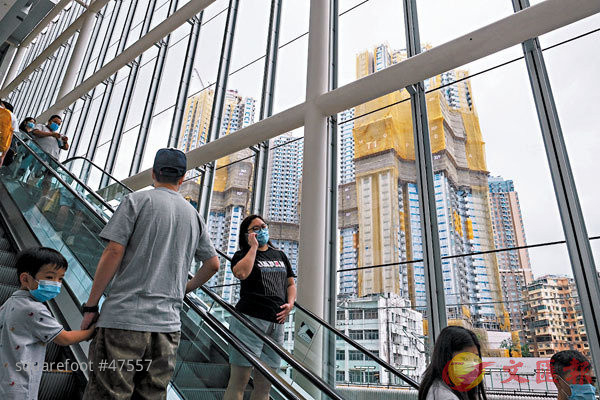The first-hand property vacancy tax, proposed two years ago by the Government to avoid the developers hoarding the first-hand residential units, is finally suspended by the Legislative Council. The Government needs to resubmit the bill as soon as the Legislative Council resumes in October. The real estate insider believes that the suspension under negative factors such as the epidemic and the external economy will help developers not to rush to sell or rent out existing flats, especially luxury homes, to stabilize the property market.
Journalist(Leong Yuet Kam)
The Legislative Council held the second meeting of the Committee on Rates (Amendment) Bill 2019 yesterday to discuss whether additional rates should be levied on first-hand private residential inventory units. At the meeting, some members questioned the policy of collecting vacant taxes that may violate the Basic Law provisions. They also criticized the authorities for not providing sufficient information for discussion. In the end, the Chairman, Lam Kin-Fung, proposed to suspend it. The motion was approved by all members, which means that the Government cannot levy a vacancy tax on the first-hand property inventory units in the short term.
The announcement was issued last year; REDA is frequently giving advice and opinions.
The Government has difficulty in finding land to solve the land supply shortage problem. To avoid developers hoarding the first-hand residential property units, Carrie Lam Cheng Yuet-Ngor proposed to levy a first-hand property vacancy tax at the end of June 2018. The additional rate that is twice the value of the rates, commonly known as vacancy tax, is equivalent to 5% of the property price. And it is for existing residential units that have been vacated for a half year or above. The Government submitted the "Bill" to the Legislative Council in March last year, which requires developers to declare their flats every year. A false statement carries a sentence of one year in prison, which has caused a strong response from the real estate developers. The Government even announced the vacancy tax measure on publishing suddenly in September last year.
The Real Estate Developers Association has made recommendations to the Government to change the term of the first-hand private housing unit from one year after the achievement of occupation certificate into 18-24 months after the issuance of satisfactory papers or construction commitments. At the same time, the association also recommended that residential properties be divided into two categories. Larger units (more than 900 square feet) can receive a more extended grace period, especially luxury properties not related to people's livelihood.
Developers changed early for tax avoidance.
In fact, in the past two years, developers have responded immediately, such as changing the existing building projects from selling into renting, and temporarily changing them to serviced apartment rental. Many developers have also introduced live-before-pay and long transaction periods to buyers to promote the sales of existing flats.
The Chief Executive of the Midland Real Estate Residential Department, Po Siuming, expresses that developers' first-hand property sales were accelerated. However, the vacancy tax alone will not significantly increase the supply of new properties. It is believed that the suspension will not too much impact on the property market or change the pace of developers' sales promotion. Instead, they will increase their flexibility in launching, while land seeking as quickly as possible is the only way to solve the problem.
Po Siuming points out that the vacancy tax will undoubtedly accelerate the pace of developers' sales, and its role in increasing the supply of new properties is limited since it is expected that the supply of private housing will not increase significantly in the future. He added there are still many people who are worried about the currency devaluation, with the conditions of low-interest rate in Hong Kong, limited supply of housing, and in the money. They would purchase property for self-use and investment, and the user demand will continue, leading to a long-term development of the property market. Due to the ease of the epidemic and positive factors, he maintained a forecast of about 18,000 first-hand property transactions throughout the year.
Lee Chi-Shing: The policy suspension reduces the impact on the epidemic market.
The Chief Executive Officer of Hong Kong Property Services, Lee Chi-Shing, expresses that Hong Kong is currently facing negative factors such as the epidemic situation and the external economy. He points out that the policy suspension will help stabilize the property market, improve the flexibility of the launching, respond flexibly to housing demand, and reduce the impact of the epidemic in the property market.
